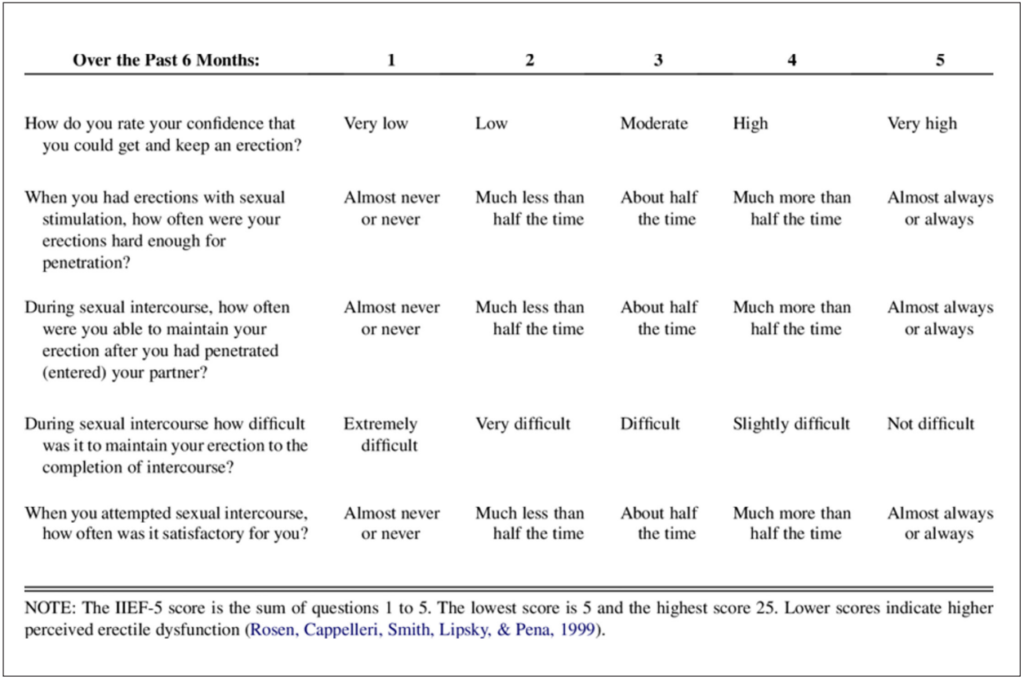Erectile dysfunction (ED) is a relatively common problem among men, not just in Ireland, but worldwide. Research has shown that one-in-three Irish men have at some time had difficulty in achieving an erection, while one-in-five say they have this difficulty regularly. There is a stigma around the condition that is often self-imposed, with many men too embarrassed to talk to their doctor or pharmacist about it. In addition, the fall-out from ED can have a detrimental effect on the people closest to the sufferer.
The effects of ED are multifactorial and can include psychological distress and relationship problems. For some men, they are unable to achieve an erection at all, while others can have trouble maintaining an erection for long enough to have sex. Due to embarrassment, some men will ignore the problem for years without seeking help, with damaging consequences for their long-term quality of life and potentially, their physical health.
The causes of ED can be physiological, psychological, or a combination of both. If the ED is as a result of an underlying physical condition, a delay in seeking help from a healthcare professional can have longer-term consequences and exacerbate the problem.
The psychological and emotional problems that can cause ED include anxiety, stress, depression, relationship issues, and even the fear of sexual dysfunction itself. The medical problems that can cause ED include cardiovascular disease, diabetes, hyperlipidaemia, hypertension, metabolic syndrome, and hypogonadism.
Unless contraindicated, physical activity has been shown to have a positive effect on the symptoms of ED — in one study of 31,724 men who were free of ED at baseline, a 40 per cent increased risk of ED was recorded with the development of obesity.
The psychological and emotional problems that can cause ED include anxiety, stress, depression, relationship issues, and even the fear of sexual dysfunction itself
SYMPTOMS
In terms of causation, the symptoms of ED are most often broken down into two groups: Psychogenic, and organic. Psychogenic symptoms are more sudden-onset in nature and feature intermittent function, good nocturnal erection, and it is noted that response to phosphodiesterase type 5 inhibitors in these patients is likely to be good. In organic ED, the onset is more gradual and progressive, with consistently poor response and a better erection achieved when standing up.
In ED that is refractory to lifestyle modifications, oral medications are the first-line treatment recommendation. Another common public misconception is that oral ED medications will provoke a spontaneous erection; if appropriate, patients can be advised that this is not the case, and that sexual stimulation is required for the medications to help the sufferer to maintain an erection long enough for sex.
The severity of ED is commonly described as mild, moderate or severe according to the five-item International Index of Erectile Function (IIEF-5) questionnaire. A score of 1-7 indicates severe ED; 8-11 is considered moderate; 12-16 mild-moderate; 17-21 mild; and 22- 25 indicates no ED (see Figure 1).
According to the HSE, medical interventions for ED caused by a condition fall into a few categories. These include (with treatment options):
- Narrowing of blood vessels in the penis, high cholesterol, high blood pressure: Statins to lower cholesterol, medications to lower blood pressure.
- Hormone issues: Hormone replacement therapies, such as testosterone.
- Side-effects from medications: This may require a change in medication regimen after consultation with a GP.
A 2017 study by Faysal YA stated that there is a strong association between erectile dysfunction and lower urinary tract symptoms (LUTS) in men with benign prostatic hyperplasia (BPH). LUTS are known to be associated with urinary obstruction caused by benign enlargement of the prostate, and this association is maintained even after adjusting for potential confounding factors, such as comorbidities and age. In the same study, the authors wrote that ED and LUTS in those with BPH have a high prevalence in ageing men and share common risk factors. These include hypertension and cardiovascular disorders, dyslipidaemia, cigarette smoking, diabetes mellitus, obesity, metabolic syndrome, stress, anxiety, and depression.

Figure 1: International Index of Erectile Function (IIEF-5)
LIFESTYLE
Sometimes, ED can be helped by implementing lifestyle changes. A 2019 study by Krzastek SC et al states that men with ED can improve their symptoms with increased physical activity, by losing weight, improving diet, and quitting smoking. If the cause of the erectile dysfunction is a medical condition, treatment of that condition should improve the symptoms.
Work remains to be
done to raise awareness
of the causes, symptoms
and treatments for ED
Whilst erectile dysfunction remains a common and stigmatising problem that leads to psychological distress, particularly with regard to relationships, help is readily available without prescription through pharmacies. However, work remains to be done to raise awareness of the causes, symptoms and treatments for ED to help patients address the problem and significantly improve their quality of life.
References on request







